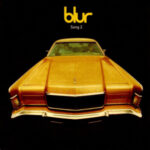 “Song 2” by Blur is one of the band’s most iconic and recognizably energetic tracks. Its two-minute burst of adrenaline became a worldwide hit, making waves in the music scene when it was released in 1997. Despite its catchy nature and infectious riff, many listeners might not be aware that “Song 2” was not a typical Blur song—nor was it meant to be taken entirely at face value. In fact, the song was originally conceived as a satirical mockery of American grunge music. This article explores the origins of “Song 2,” its place within the broader context of Blur’s discography, and how it served as a commentary on the grunge movement and its influence in Britain.
“Song 2” by Blur is one of the band’s most iconic and recognizably energetic tracks. Its two-minute burst of adrenaline became a worldwide hit, making waves in the music scene when it was released in 1997. Despite its catchy nature and infectious riff, many listeners might not be aware that “Song 2” was not a typical Blur song—nor was it meant to be taken entirely at face value. In fact, the song was originally conceived as a satirical mockery of American grunge music. This article explores the origins of “Song 2,” its place within the broader context of Blur’s discography, and how it served as a commentary on the grunge movement and its influence in Britain.
The Genesis of “Song 2”
Blur, formed in London in 1988, was known for its eclectic style and ability to blend various musical genres—from the Britpop of “Parklife” to the experimentalism of “13.” The band’s approach was always adventurous, but “Song 2” marked a departure from their previous work. It was composed as a quick, energetic track, deliberately crafted to break away from the introspective and layered compositions typical of their earlier albums like “The Great Escape” and “Blur.”
“Song 2” was primarily written by Blur’s guitarist Graham Coxon. In interviews, Coxon has explained that the song was influenced by his experiences with the grunge movement, particularly the wave of American bands that had gained popularity in the UK during the early 1990s. Bands like Nirvana, Pearl Jam, and Sonic Youth were seen as the vanguard of a new, raw sound characterized by heavy guitars and an unpolished, punk-infused aesthetic. For many British musicians, these bands represented a form of musical escapism—an antidote to the perceived superficiality of the Britpop scene.
The Grunge Boom and Its Influence on British Music
During the early 1990s, grunge music was ubiquitous, dominating the charts and airwaves in the United States and quickly influencing the UK. British bands felt the pressure to adopt a more “authentic” and raw sound to compete with the American heavyweights. This desire to tap into the grunge ethos was not just a musical trend; it was also a response to a broader cultural shift. In the UK, the Thatcher era had ended, leaving a void for many young people searching for identity and meaning. Grunge’s rejection of glamorization, its raw and often dark themes, and its DIY approach resonated deeply with this audience.
Blur, initially seen as a quintessential Britpop band, found themselves at the forefront of this debate. “Song 2” was not just a departure in style but also a commentary on the grunge craze sweeping Britain. It was a way for Blur to reclaim their sound, using humor and satire to address the unrealistic expectations that British fans had placed on them and other bands to conform to a particular musical style.
Mocking the American Grunge Scene
“Song 2” was crafted to be deliberately simplistic and catchy, in stark contrast to the complex compositions and often brooding lyrics of the grunge bands. Coxon has described it as an attempt to “do something straightforward and joyful.” The song’s two-word chorus—”Woo-hoo!”—was a conscious effort to create a memorable, almost silly hook. This was in response to the often heavy, introspective lyrics of grunge songs that dealt with themes of depression, alienation, and existential angst.
The music itself is intentionally brash and loud, featuring a powerful riff and a driving beat that creates an immediate sense of excitement. The lyrics are minimal and repetitive, further emphasizing the contrast with the more poetic and narrative-heavy lyrics of grunge bands. This simplicity was a deliberate attempt to parody the straightforward, often monosyllabic lyrics of American grunge songs that prioritized emotional rawness over lyrical complexity.
Blur’s Critique of the Grunge Phenomenon
Blur’s critique of grunge was not just about the music; it extended to the phenomenon’s influence on British music and culture. In the mid-1990s, many British bands were adopting grunge influences—whether in sound, appearance, or attitude—as a way to maintain relevance in the rapidly changing musical landscape. Blur was at the forefront of the backlash against this trend. “Song 2” was a way to poke fun at the seriousness with which many took the grunge genre. It represented a conscious decision by Blur to differentiate themselves from the dark and often self-pitying tones of American grunge.
By embracing a playful, almost carefree attitude with “Song 2,” Blur was making a statement about the danger of taking musical genres too seriously. The band’s use of humor and irony in the song was a reflection of their broader approach to music, one that sought to subvert expectations rather than follow trends. It was a call to musicians and listeners alike to enjoy music for what it was—entertainment—rather than a reflection of one’s identity or emotional state.
Commercial Success and Cultural Impact
Despite its satirical intent, “Song 2” was a commercial success. The song peaked at number two on the UK charts and became a staple at sports events and in pop culture. Its simplicity and energy made it easy to adopt for various uses, from video games to movie soundtracks. The song’s impact on popular culture was immediate, illustrating the disconnect between the song’s intentional mockery of grunge and its reception by the public as an anthem of pure, unadulterated fun.
This dissonance between the song’s meaning and its reception also reflected the broader cultural phenomenon of ironic appropriation in the 1990s. Artists and audiences alike were beginning to embrace a post-modern approach to music, where sincerity and satire could coexist. “Song 2” became emblematic of this trend, its joyful noise a contrast to the darker, more introspective sounds that dominated the charts at the time.
Conclusion
“Song 2” by Blur was not just a hit song; it was a deliberate statement against the grunge movement that had swept Britain in the early 1990s. Through humor and satire, Blur was able to critique the seriousness and introspection of American grunge while still delivering a catchy, memorable track. The song’s success was a reminder of the band’s ability to navigate the shifting tides of popular music, using wit and irony to carve out their own space in a landscape dominated by imitators. In the end, “Song 2” was more than just a song—it was a commentary on the nature of musical influence and the role of the artist in defining trends and movements within the music industry.
This post has already been read 386 times!








